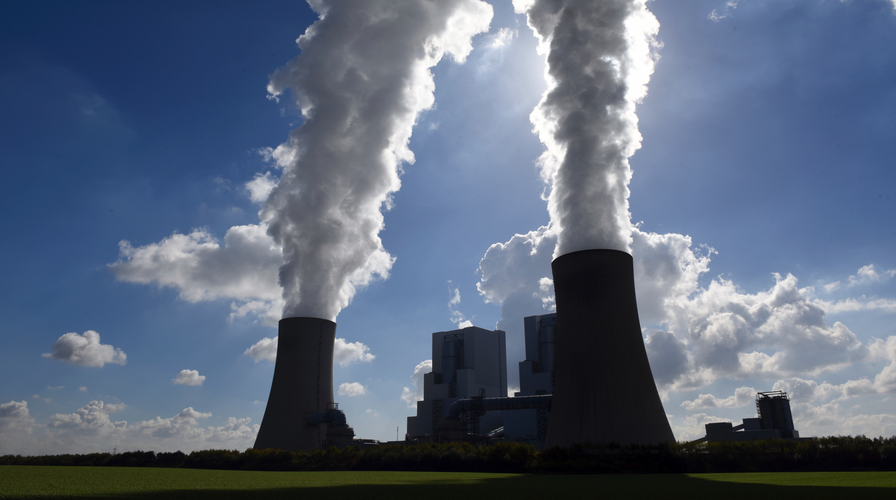Fox News Flash top headlines for May 8
Fox News Flash top headlines for May 8 are here. Check out what's clicking on Foxnews.com
For the first time ever, Britain has powered its electrical grid without the use of coal for a full week.
The shift towards cleaner burning and renewable energy sources such as natural gas, wind and solar, has been going on for some time, but the National Grid marked the momentous occasion on Twitter at 1:24 p.m. local time on Wednesday.
"@ng_eso confirms the first ever week of coal-free operation of Great Britain’s electricity system," the National Grid exclaimed in the tweet. "The last coal generator came off the system at 13:24hrs on Wednesday 1st May– meaning we reach a week with no coal at 13:24hrs today!!"
Fintan Slye, a director at the National Grid Electricity System Operator, told the Financial Times that he believes occurrences such as this are more likely than not in the future.
“While this is the first time this has happened, I predict it will become the new normal,” Slye said in an interview with the news outlet, of the 168-hour block.
The previous record was Easter weekend in April 2019, when the grid did not use coal for a span of 90 hours and 45 minutes, the FT reported.
“As more and more renewables come on to our energy system, coal-free runs like this are going to be a regular occurrence," Slye added. We believe that by 2025 we will be able to fully operate Great Britain’s electricity system with zero carbon.”
Greg Clark, MP for Tunbridge Wells and Secretary of State for Business, Energy & Industrial Strategy, told the FT that "going a week without coal for the first time since the Industrial Revolution is a huge leap forward in our world-leading efforts to reduce emissions, but we’re not stopping there. We’re now on a path to become the first major economy to legislate for net zero emissions.”
Previously, the U.K. has said it would stop using coal for its power needs by 2025. According to the 2008 Climate Change Act, the UK government is commanded by law to reduce "greenhouse gas emissions by at least 80 [percent] of 1990 levels by 2050."
The U.K. remains a member of the Paris Climate Agreement, which according to the U.N., "brings all nations [for the first time' into a common cause to undertake ambitious efforts to combat climate change and adapt to its effects, with enhanced support to assist developing countries to do so."
MELTING PERMAFROST IN ARCTIC WILL HAVE $70 TRILLION IMPACT, NEW STUDY SAYS
On June 1, 2017, President Trump announced that he would be withdrawing the U.S. from the Paris Climate Agreement, per a clause in Article 28 of the agreement that states: "At any time after three years from the date on which this Agreement has entered into force for a Party, that Party may withdraw from this Agreement by giving written notification to the Depositary."
Coincidentally, the 2020 U.S. presidential election is scheduled for Nov. 3, meaning the earliest date the U.S. can officially withdraw from the 2015 agreement is Nov. 4, 2020, one day after the election.

